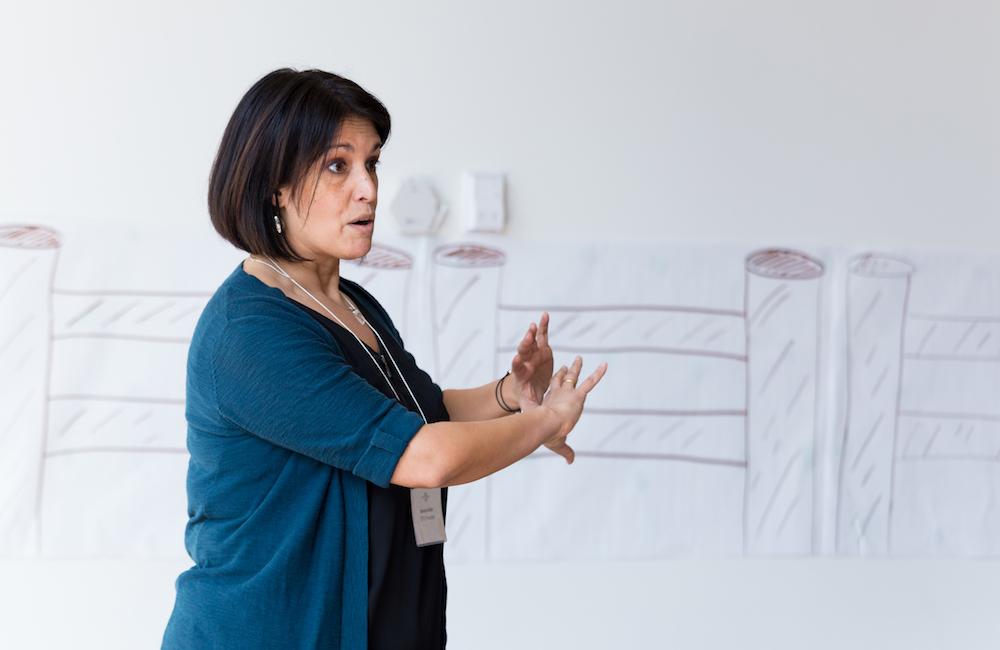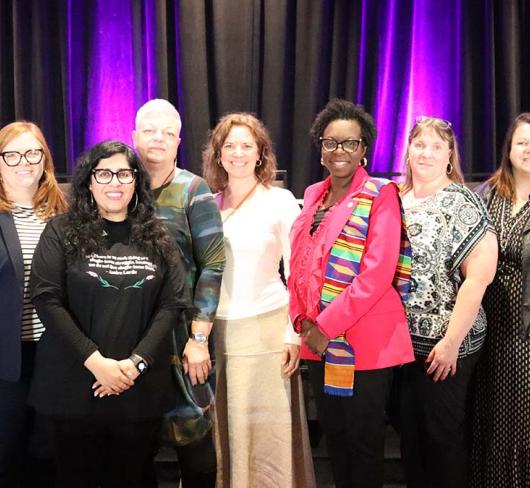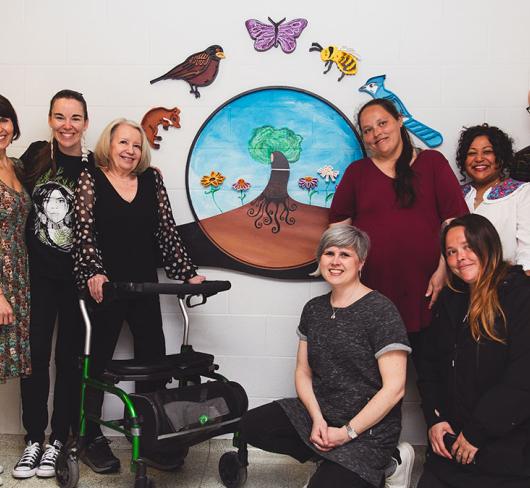
Creating Networks of Solidarity and Empowerment
Thirteen years ago, I became a member of ETFO. As an internationally trained professional, the more I heard about ETFO the more eager I was to learn about what my union had to offer. I became a frequent visitor to the ETFO website and started applying to different programs. I attended the Visions Conference, …and still we Rise, Reflections on Practice and several annual meetings. Women’s programs allowed me to develop my leadership skills, connected me with colleagues, helped me form a network of support and equipped me with the tools and resources I needed to achieve my goals. The programs provided the opportunity to talk intentionally with other women about social justice issues and to become proactive social justice agents in our classrooms, schools, boards, locals and at the provincial level. I have consistently been inspired by the powerful, fierce, knowledgeable, visionary, caring and hardworking women who have become my role models, mentors and friends. ETFO women’s programs are open to all members who identify as women and ETFO has ensured there are programs for racialized and FNMI women.
A Global Shift in Women's Rights
It is no coincidence that “feminism” was the word of the year in 2017. Millions of women participated in global marches and advocated for political, economic and social equality. Women joined together to advocate for their rights, to protest discrimination, harassment and violence, and to support anti-racist, LGBTQ and FNMI movements. Millions of women around the globe participated in the #MeToo campaign to denounce sexual abuse and harassment. Women who had been silent began to speak up. Fearlessly, they shared their stories and experiences.
In the context of this global shift, ETFO is a trailblazer in empowering its women members to be leaders in their union and in the social and political life of Canada.
ETFO Women's Program
Eighty-one percent of ETFO members are women, a proportion that has been consistent since the inception of the federation in 1998. Six percent of the annual budget is allocated to women’s programs that offer courses, workshops, awards and publications to women members. Funding is also available to establish provincial and local partnerships with other organizations and to support groups that advance the status of women and women’s issues in society.
ETFO provides equity and women’s programs in the context of its constitutional object: to foster a climate of social justice in Ontario and continue a leadership role in such areas as anti-poverty, non-violence and equity. ETFO women’s programs have common goals and recurring themes. They enable women members to identify areas for personal growth, equip us with resources and tools, encourage us to strive for a more just, peaceful and equitable society, enable us to create networks and inspire us by celebrating the achievement of other female professionals.
ETFO's Unique Approach
ETFO is committed to gender equity. Its women’s programs aim to increase the number of women members in leadership and decision-making roles. There is intentional and purposeful leadership development as women actively participate in their personal and professional growth. For example, Reflections on Practice “was about women finding their voices to challenge existing practices, to speak up for what counts, and to conduct action research studies on what and who matters to them.” (Rodrigue et al, p. 12)
ETFO’s women’s programs are unique because they encourage, praise and champion the work and achievement of women. It is powerful to witness women speakers tell the stories of their successes and challenges. These powerful role models in diverse leadership roles serve as motivation to engage in the labour and other social movements and to pursue opportunities to advance professional knowledge and leadership skills.
Empowered women become leaders. They become transformative social agents who create more equitable learning spaces to support the diversity of their students’ needs, build better relationships among colleagues and contribute to more inclusive school environments. Feminism was the word of the year for 2017; it continues to manifest itself in 2018 as empowered women amplify their voices in a world dominated by male leaders. In Canada, although women make up about 50 percent of Canadian population we are underrepresented in leadership and decision-making positions. Globally, women perform 66 percent of the world’s work, produce 50 percent of the food, but earn 10 percent of the income and own 1 percent of the property (UNIFEM). We have come a long way but there is still much to be done.
Ira Metani is a member of the Elementary Teachers of Toronto.
Carla Matos is a member of Thames Valley Teacher Local.

